
|
|
|
|
|
|
|
|
|
|
|
|
|
|
|
- * - S T A R . D I A R Y - * -A short story collection by Andreas IngoAQUATICAThe tale of Mandal AscensionThat was on the mini planet Aquatica, some highly paid colony reformer’s wet dream. A sphere-shaped structure that measured five hundred meters in diameter: Composed of eight smaller parts, which divided the globe in a section in the middle, and two cuts in each of the two halves that built the body of the globe. It hovered in a geostationary orbit around the sea dominated planet Aqua-6: A celestial body that was half as big as Earth, and located in a solar system fifty light years away. The day had come and the variable sun, which almost always shone with a hint of blue, was able to give life to the paradise-like surroundings on Aquatica. It was a park-like swagger build, where colonial reformers invited guests and seduced many women. When Mandal Ascension traveled across the lawns, it was like he lost perspective on time and space. He was completely up in the role as the cosmic caretaker. Alone, with no time to spend on entertainment and other diversions, he was only faced with the task: to nurture and develop the beauty of the amazing plants that thrived on the mini planet. The working machine Nimrod-3 was not only meant for bigger jobs. It had internal space in an upper level where there was a connection device. Here Mandal used two remote-controlled robots. These were mounted on the front of the machine, in cavities. These resembled graves of the dead, designs in lightweight metal. The robots would rise from the cavities when they were revitalized by Mandal’s consciousness. In the lower level there were Mandal’s office, his sleeping area, shower and toilet. The day turned to afternoon when Mandal was finished with the overall workload. He stopped the working machine, looked out at the blue silhouette of Aqua-6, which rose above the oval horizon like a giant dome. There were islands in the blue sea. These had the color of golden brown, structures in light gray also marked futuristic cities. Mandal went down from the cockpit. He used the precision cut aluminum ladder, a work of automated factories. The upper floor of Nimrod-3 was a room for a traveler on a journey between two worlds: The inner world of Nimrod-3, with the sparse furnished interior, polished and fresh smelling, and the external world in the well-kept park. He sat down in the inclined link chair, molded as a futuristic statue with a seat of polished leather, lowered the connection link and activated. The robot awoke from its unconscious slumber. Mandal tested the coordination of the gleaming arms. These had the color of aluminum, not mounted in a piece, but consisting of three tubes with joints. The hands could be replaced with different tools. There was a cutting tool for processing plants, a marvel of metal with sharp edges. Additionally, there was a spreader from an earlier century, a spreader that could be connected to a water supply, laced with nutrition. The robot stood up, used a ladder and stepped down on the grass. It went out over the precision cut grass, descended on the artificial ground and inspected the day's work. The grass was still alive, just as green and full of chlorophyll as usual. The length of the grass measured three centimeters. None of this surprised Mandal. He proceeded towards the perimeter of the lawn. Here bright green plants were seen, high as ferns, arranged in an artistic way. There were red trees also, at times, like palm trees with elongated leaves. The green plants reminded of Aloe Plants. Light yellow portions, like folded wings of dragons, appeared on the curled leaves. The red palm trees were even more beautiful. They leaned, as a doomed lover at the gate of his future wife. Darker grains appeared on the leaves and in some areas red tinted to violet. The robot went over the artificial surface of the planet. Gravitation was generated from a special apparatus in the planet's center, it was working satisfactory and the walk was normal. The robot came to a small pond that was near a domed hill. A boardwalk was leading out to the center of the pond; this was a small island, dug in precision for maximum affect value. The surface of the water didn’t ripple but reflected the silhouette of Aqua-6. There was a small gazebo on the island. This was built with futuristic dimensions: Windows similar to square triangles, outer expansions that formed patterns completely impractical but sensuous to the eye. It was an upper ring at the gazebo, which formed a semi-circle overlooking the lake. Mandal opened a door and walked into the gazebo. He went up to a vase that stood on a table and inspected the plant in the vase. It was a yellow plant, similar to a rose, with pink outgrowths. The outgrowths formed tentacle-like waveforms in the afternoon light and seemed almost to move when touched. Mandal noticed that the plant needed water. He lifted the plant out of the vase, took the vase to the pond and filled it with water, and then put the plant in the vase again. The rest of the day passed in a haze of work and full absorption. Mandal inspected everything he could in the park. Sometimes he changed one plant to another: Watered a little with the spreader, pruning overgrown trees with the cutting tool, then he dug into the earth with the hand. Finally, he got tired and was ready for bed. The sleeping alcove was like made for a little man. Mandal was born with a rich genetic inheritance, but was still very pale in the face. The face was different. It was narrower, more pointed. The eyes were larger and darker. The wrinkles that formed faint insinuations around the eyes, nose and mouth, made the man feel alive. His face was like something forgotten and old yet new. A hint of the animal kingdom, but mechanized, a mix between the androids from the twenty-first century and the cats from the past. When he lay down on his side, and looked into the study, he was really happy. The workroom was full of seedlings in all manner of colors, and the walls were decorated with shining posters. The sheet was colored in silver; it was soft as silk, cool and caressed his body. Soon, he fell asleep. The following day faded into the variable light from the star. Mandal’s aide wandered over the mini planet’s surface and inspected the plants at the South Pole. Going over the equator, continuing three hundred meters over the sphere and end up in a new angle, was an experience beyond time and space: The blue light from the sea, which reflected the light of the variable, was like fading reality on a new frequency. Mandal was at the South Pole and continued forward, the blue light faded away and was replaced by a silent emptiness, not inky darkness, rather dusk. He noticed that the lights had been lit. It was red and blue lights that threw showers of photons against a jungle of plants, fenced. A walking path of stone slabs was prepared by architectural masters, Mandal made small adjustments. Suddenly he stopped. At a particular location, on the edge of the decorative jungle, a section of cobblestones was knocked aside. In sheer terror Mandal watched his greatest fear: Someone had torn up trees and bushes of the ground, raked and left nothing on the spot. The section was not ugly in any sense: The whole spot was a perpendicular surface, not a blade of grass was left. The soil was raked almost mechanically, with precision by an intruder who must have had the same profession. Mandal wondered if this was an ordered job. Someone must have arrived during the night and made a planned intervention. Perhaps the colonial reformers had a new wish and hired someone who did the job? But this seemed highly unlikely. They had hired Mandal to take care of everything. The garden was Mandal’s specialty, his calling and masterpiece. He had signed a contract that gave him authority over everything: This to give the colonial reformers a reliable hand, someone who did more than was required. The maintenance of the garden was more than a job, a task that was about transcendence, and that reflected the beauty of Mandal’s being. Mandal contacted his employers and was met with anger and skepticism. No one had used anyone for a sudden intervention. Moreover, they would not come to visit for many months. It was now up to Mandal to find and isolate the intruder: Use the weapons in the working machine and kill those responsible, if necessary. Mandal continued to Nimrod-3 and took out the weapons from the gun cabinet. One of these was a plasma-based "Exploder" with a homing mechanism. The gun fired a green plasma, which was looking for organic and mechanical abnormalities and exploded on contact. The other weapon was a beam based automatic weapon, which fired green rays, very effective in close combat. Mandal decided to scan all areas on the mini planet. The intruder could be lost. There might even be more of them, waiting for him, so he would look with great caution. He approached the dwelling house with a feeling of exhaustion. All day he’d searched through the various sections of the mini planet. He’d lost himself in gardens, overgrown by trees with multiple trunks; in winding bushes that looked out towards the walkways. There were plenty of absurdities: A small shrub, bioengineered like the others, full of brown cones. Sprawling scales could be observed over the cones surface. But they reminded a bit of Aquatica: Divided into two halves, an admittedly with smaller diameter and a lower one with larger diameter. There were also a number of gazebos he had visited the day before. He had walked, he had sneaked, and he had given up hope of finding the intruder. Now the only thing that remained was the dwelling house. This was the glory of the mini planet: It was light gray as the gazebos, but it was significantly larger and built in sections. Thoughts came about the Roman mansions from Roman times, but it was not an old-fashioned design. It was cylindrical units that surrounded a rectangular inner sphere, where a rectangular build could be observed in its futuristic splendor. You could see the grand staircase that led up to the inner slot. Nothing had been left to chance: the larger forms were decorated with extensions from the era that existed, year 2153, one hundred and fifty years into the future. Mandal went up the stairs. He put down his exploder and took a firm grip on the ray gun. He was left to his fate. A solo artist in a universe filled with corruption and enmity. Man lived on man, young on old, and the only thing that remained was the struggle for transcendence: To reach the unreachable with limited means. The door opened to the courtyard. He was now standing in a place that spurred the imagination: The rounding of the outer cylinders was palpable, but through extensions, like bridges without railings, these cylinders were connected to the rectangular structure in the courtyard. Blue sheeting hung from the extensions. They had green rings with embellishments. Thoughts came on the chlorophyll rich grass and the bushes in the outskirts of the lawn. Mandal didn’t go into the rectangular building, but went around it. He saw climbers who were looking up the walls. In a rectangular window, he could discern pink curtains: Pleated, full of shadows and light. Suddenly he saw the intruder: Near the far corner, he stood bent, digging with a tool in a garden plot. Mandal raised his weapon, took a few steps closer, fired at the enemy and hid behind the corner of the building. The heart rate rose in his chest. He glanced back toward the garden plot but no shape appeared. Mandal was puzzled. Had the enemy sought shelter behind the corner, waiting for him? Or had he gone around the corner and would surprise him from the other side? Mandal gripped convulsively round the gun and crept forward. Shadows were thrown against the interior walls, from the middle portion between the apertures in the outer wall. The gravel under his feet was newly raked. When he came to the garden plot no enemy could be seen. He waited a long time at the scene, worried that the intruder had entered the dwelling house and waited there: Like a ghost that hovered in the windows on the inside the building, between the curtains. The garden plot was yet another surprise: The thing that happened in the garden had also happened in the garden plot: All herbaceous plants had been uprooted. There remained only the pure soil raked over with expert-like precision. Mandal was worried. He was afraid of the reactions from the employers, but also afraid of the total failure: To lose his garden, the mini planet and all his life. The last day turned into an intensive search. He picked up the exploder and moved over Aquatica’s garden groves, terrified. He was looking at gazebos and streams. He walked up stairs where he could see the outline of vegetated hills. On the shores of small lakes he looked for footprints in the care fatted ground. But no intruder could be seen. The day turned into night. He found himself standing at the portion where the northern half of Aquatica turned to the south. He stood between two walls, illuminated by faint light that painted patterns on light gray walls. A staircase led to the southern direction, another to the north. A walkway a few meters away led to the interior of the mini planet. Mandal hesitated. The robot looked up into the sky and saw the huge outline of Aqua-6. The dark sphere made an undoubted impression of Mandal’s consciousness: He saw the cities on the islands, surrounded by water, illuminated by a gigantic network of light. Shooting pains along Mandal’s spine caused him to shiver, while he lay in the connection room. Was the intruder in there? Down in the walkway, somewhere in the interior of the mini planet? Mandal decided to return to Nimrod-3 and resume the search the next day. At dawn the first rays of light appeared at the working machine. Mandal hadn’t slept well during the night. He’d dreamed nightmares about the unknown intruder. He’d been too far away to be discernible at the moment of contact. But he’d leaned forward, toward the garden plot; the back had been seen on the figure. It was something that resembled a small unit on the back; a tool that was aimed at the garden plot, tubes were stretched across the shoulder blades. It was a human figure, but he was slightly longer. Mandal went to the bathroom and then to the upper floor of the working machine. He looked out the windows, being careful to keep track of the weapons. The atmosphere in Nimrod-3 was something of an electrified future: There were various panels along the right wall. The link chair was an unusual shape: As an alien control station, complete with the characteristic practicalities: A two-dimensional display, resplendent in green and yellow letters. Cables for electronic circuits. Calibration equipment in black, which made the connection possible to different workers. There was an oval table in the rear end of the machine: An oval shape which was also cut with an ingenious cavity, for aesthetic value. Mandal sat down at the table and drank an energy drink. He looked alternately through the rear window, sometimes on the gun by his side. The scenario that he saw was painted in colorful shades: The intruder who was shot, the intruder who fell, the bandage that was wrapped around his own wounds. The truth that was revealed later: The image of himself in the global ether. He was getting ready for the attack. He sat down in the link chair. The robot was activated. It went down the stairs, across the grass and up to the entrance of the machine. The door opened and the shape stood still in the opening, as a living hero, illuminated by the light of dawn: Mandal came to his senses. The robot retrieved the weapons. The morning passed slowly until morning. Mandal’s second I walked effortlessly over the arched landscape. He passed the place where the first discovery had surprised him earlier. Mandal saw something and was astounded. There, in the same place as before, plants sprouted from the earth. These plants resembled nothing he’d previously seen: It was a kind of bushes, full grown in a very delicious, yet scary way. There were bushes taken from a futuristic tale: Blade, oblong and sinister, blood-red with dark veining. There were flowers in violet, delicate, beautiful, but with an excrescence resembling a scorpion. Tucked away in the bushes, you could see something that looked like a dragon: An outgrowth, full of nutrition and vitality, a flower in full that sprayed flames of fire. Mandal was amazed, excited and surprised. The intruder was beyond mysterious: A man standing outside time and space, making small adjustments whenever he wanted, changing everything for the better? He activated a camera and photographed the flower. Then he walked the mile-long route back to the working machine, went up the ladder and stood corrected. Mandal broke the connection and returned to the interior of the machine. He stood up and walked down to the workroom. He was met by the green plants; experiments not yet finished. He was about to improve parts of the garden: Infuse life into dead batches, bringing the unknown into boring sections. But now he was very fascinated. He sat down at the desk, where there was a computer and a large two-dimensional screen. He downloaded the photograph from the robot and enlarged it on the screen. It was a transformative experience of something new: A biological version of the Chinese dragon. This was not harmless in its luster: It had scales and horns, streaks of color along its coiled body. And then the fire. Mandal returned to the link chair and connected to the robot. He walked along the flowering trails, hastily, to the dwelling house. When he arrived at the scene, he saw that the same thing had happened at the garden plot: A kind of flowers had sprung out of the earth. They had green stems, separated by a sort of whirling moss. The moss was growing halfway up the stems and gave force to the flowers. The shapes of the petals had the semblance of black insects: Beetles from a time after the death of nature: Experiments from a gene-manipulated future, where everything was possible. Mandal photographed the flowers and returned to Nimrod-3. Suddenly there was the sound of a huge explosion: Tremors of a force Mandal had never experienced. Noise. A feeling that the foundations of reality was breaking up. Mandal ran to the link chair, hooked up against the robot and ran across the lawn. It rumbled by a quake from the interior of the mini planet. And then the impossible happened: Suddenly, like a colossal absurdity, the shards of the mini planet began to separate. At first it happened in the middle, where the northern hemisphere met the southern hemisphere. Later these halves were separated into their smaller shards, as if a giant knife had emerged in space and cut them into pieces. Explosion was heard after explosion. Aquatica began to rotate: Like a breakdown of the laws of the cosmos, totally unnatural but still true. Mandal was struck with horror. The gravity was still intact, but it began to drop. You could see the water from the lakes flush over the countryside. It floated around the bushes, over the hills and disappeared over the edges. The robot stood unsteadily on the ground. Then the intruder came. He hovered in the air like a cursed spirit. In his hand was a weapon similar to Mandal’s. Green rays cut through the air. The robot blocked. The unit on the enemy’s back proved to be a jet propulsion. The shard of the planet rotated and day became night. Lights came on and the robot retreated to the protection of Nimrod-3. There was a stillness in the air, the feeling before a storm: A noise could be heard that wasn’t there: Delusions from a young mind that had never seen God. Mandal took up the exploder and searched for a way to destroy the enemy. Suddenly the enemy was seen again. He hovered above Nimrod-3, fired his ray gun and hit the robot. The robot fell backwards and was injured at the moment of contact. Mandal fought with maximum strength in order to maintain sharpness. The robot's arm came loose, but it rose from the ground and picked up the gun again. The enemy attacked. He fired his ray gun. The robot was hit, dropped the exploder and had to seek shelter in the working machine. The robot was moving gently across the floor, stopped and collapsed on the same point. Mandal rose from the link chair. Suddenly, a window exploded on the left side of Nimrod-3. The enemy came into the space. Mandal threw himself on the floor, dead cold of failing thermostats, snatched hold of the exploder and fired the plasma charge. Nothing happened. The enemy looked at Mandal, Mandal looked back. The intruder resembled nothing Mandal had ever seen: It was no man. It was a mix between a machine and an alien. One leg was perfectly cast in metal. Organic fragments in beige were up against the central area. There were ribbed beams in aluminum, a kind of skeleton. But pristine skin grew from the stomach area and up to the scapula. There they sat, conspicuous tubes, which were coupled with the jet pack on his back. His face was encased in a helmet, leaning forward. It was terrifying but very beautiful. The skin was the color of beige, a protruding nose portion, as a tapir’s, but the whole event was dominated by the alien eyes: Eyes that were large and very black. As dark crystals in the dusk light, open to the cosmic drama. Mandal fired and hit the enemy. In a cosmic quiver, very lax, the plasma charge was released and sent a shock wave of light on Mandal’s retina. The dawn had come. One hand of the enemy was torn away and fell down on the floor. The organic machine retreated and disappeared through the window. Mandal was beside himself with terror. The legs shook from mental exhaustion. Now, the day was felt. Light entered through the open loop-hole that sent cold winds against the caretaker. He went to the aluminum ladder that led up to the control station. He groped his way up, sat down in the black leather seat and took control of the working machine. Nimrod-3 started with a roar. The murmuring nuclear engine got the oiled caterpillar bands to spin. Mandal looked up to heaven where he saw Aqua-6 in all its glory: The blue planet passed by and soon the day became dusk. Other shards from Aquatica spun around the horizon. Nimrod-3 moved toward a landing site: A gate between Aquatica and Aqua-6. There was a spacecraft there. Mandal operated Nimrod-3 in a state of great confusion. He didn’t know what he was dealing with. The mini planet was lost. What was the real purpose of the life-form? Why had it planted plants for an unknown reason, only to discard the result? The machine stayed in the vicinity of the landing site. Mandal went down the aluminum ladder, trembled in his legs, and decided to do something drastic: He would lose the link gear at its adjustable mounting points, bring it, then bring up the exploder and venture out into the open. He’d run the short distance between Nimrod-3 and the landing site. There he would fire some plasma charges and go into the spaceship. The link equipment would be used in case the enemy was waiting on the way. He would go into the spaceship. Then he would activate the space-drive and fly to Aqua-6. Mandal opened the door to the lawn outside. Darkness prevailed. He crept across the lawn, looked about, but saw no enemy. He started to run. Suddenly a green beam cut through the air and Mandal was hit. Mandal tried to get up but he couldn’t. He leaned forward and saw that his right leg was gone. He felt no pain. The shock was complete and he began to lose consciousness. So he activated the link gear. The second robot came to life out of dormancy. It was a horrible state of great pain but simultaneously the only thing that made life possible. The robot rose from the grave, broke down the ladder and ran to Mandal’s body. The robot looked around. The day dawned and he could see the outskirts of Aqua-6. The enemy came floating through the air. The robot bent over Mandal’s body, grabbed hold of it and started to run. The enemy fired beams of light through the air and hit the robot. The shock was powerful and the metal skeleton fell to the ground. The robot felt his way across the grass. The landing site loomed twenty-five meters away. But now the enemy stayed close to the robot and his controller. He picked up the exploder and threw it away, with a controlled movement of the arm. He was not furious. He resembled a futuristic creation of sublime nature: No criminal, no gardener, but a cursed spirit moving away from the structure of the universe. Mandal was lost but held on to the only thing he had: His life as a gardener, an immortalized spirit, now on the road to perdition. The robot searched further in the grass. The enemy stood still, watched the spectacle: The gardener who found his temporary salvation in his metallic helper. But he was not only carried by him. He was the controller who controlled his helper and also himself. Mandal was losing consciousness. The pain in the remains of the right leg burned deep into the wound’s of his soul. He was the gardener. He was the successor to the human failure. He was the remains of the past and no longer human. THE VEIL OF THE PENTAGRAMThe journeyTrent and Amy climbed on the slippery rock. Now they were one with the celestial body, and the ice that was upon it. The marvelous thing was that they ended up in this sector, far removed from earth, far away from the established colony. Gravity existed, but it was very weak. They had to use fixtures anchored in the rock. When they found the pieces, they crawled over the rough surface to an icy area where they dug a cave in the ice. They would spend the night in the cave. They lit a fire of glowing green energy fragments, which they acquired on the colony. These energy fragments got the white ice to shine, and revealed dirt particles. What they found was what they expected: Different fragments of porous rock. Ice cubes with dirt particles. Scientists had long searched for the origins of life. They had explored worlds with organic life. This life was very similar to earth life: The same basic cellular structure. The same form of DNA, RNA, cell membranes... They no longer believed in the old theories about human specificity. It was believed in panspermia - that life on Earth and other colonies came from outside: From genetic material, although this would be simple in nature. The new theory was that this material came from celestial bodies that floated through space, plunged into the planets and made evolution possible… Trent and Amy were freethinkers. They came from the same place, in terms of ideas. They had made it through science, philosophy, religion and metaphysics, but never to embrace something so fervently that they became the information. What they discovered was that society was an information society. It was a war of ideas, which were contrary to each other, just as man was pitted against man in the wars that existed before. It was not the genes that ruled but the memes. The next conquest was the conquest of life itself. People wanted to understand the cause of life, allowing them to create life in laboratories. Amy had realized that this was pointless. The cause of life was not found in space, but somewhere else. She realized this through conversations with Trent: Another rootless soul who sought for the sake of seeking. The idea of panspermia was not poor in scientific terms: The fact was that the evidence was very convincing. Scientists had found signs of organic molecules in distant celestial bodies. They had seen astonishing similarities between life forms on the different planets. Evolution as such was a very slow process, and would naturally be accelerated by interstellar exchange. Trent, however, had discovered that there was a gross mistake in the usual theories: It was the scientific method itself. Not the facts that were presented, but the very idea that gathering of facts would lead to knowledge. He realized that the world didn’t work as science claimed: That there was a physical world, that it followed specific laws, that one could deduce anything even by analyzing memories. So he postulated that something would be found in the distant asteroids. But the probability that this “something” would be the building blocks of life seemed to be near zero. The journey to the asteroid took place in the freethinker’s initiative to liberate scientists from meaningless work and to make them focus on something else. The night was still young; the couple was illuminated by the green light and some weak spots on the interstellar surface. Amy carved out ice cubes from the walls of the cave. Ice cubes to be sealed in plastic bags and then placed in special bins. “I find it hard to believe that this won’t be crucial.” Trent said, “But we shouldn’t call it revolution, rather a counter-movement.” “Yes. The end result of meme evolution is not truth. A survivor in the garden of thought is rather a parasite; an invading thought structure that takes control of the individual and makes him a carrier.” “That’s why it’s so hard to believe in the end.” Trent said, “A thought structure that kills the carriers can’t survive.” The freethinkers pulled together to dig out the last bits of rock. These would be sealed in plastic bags and later brought back to the colony. The society of the colony was dissolving. Science had reached a point where it realized its own limitations. What followed was a fierce debate, argument made against counter-argument and the end result was conceptual indifference, a kind of throwback to something earlier, and chance took over. Now the freethinkers journeyed to a remote cloud, a nebula of interstellar dust, where they thought stars were created. They didn’t know why they made the trip. They felt that the search was life’s greatest adventure. The ride in the spaceship was different from other trips they’d done before. Earlier travels had a clear purpose, a concrete goal. Now they had become accustomed to living in space. They ate well, they played games, had discussions about everything. They were far away from the obvious and something else took over. One evening they sat down and pondered when Trent became serious. “What if the reason for this trip is different from what we think it is?” He said, “That we don’t want to search. That we’ve put all of this behind us.” ”What do you mean?” “The fact that our so-called interest is the origin of something new: Maybe we’re moving away from ourselves and into another universe, quite literally?” Amy didn’t watch her travel mate. She looked down at the table, busy counting vitamin pills at the side of a can. “This isn’t something I pick out of my imagination.” Trent continued, “I’ve seen the sophistication of consciousness, realized that my true emotions, is a product of information I’ve nurtured at a deeper level.” “I remember our adventures...” Amy said, but she was still preoccupied with the vitamin pills on the table. “Maybe I’m in love.” Trent said abruptly. “In love?” Amy said surprised, “In love with what?” “That’s what I wonder about. In periods I’ve imagined I’m in love with you. But right now it comes and goes.” Amy watched the young man with interest. “I’m not in love with the person I see.” Trent continued, “Not in the person sitting next to me. It’s rather something that you could be but haven’t yet dared to express.” Amy laughed. She’d grown accustomed to the freethinker’s strange quirks. His impulsiveness in moments when it least counted. “Why are we here at all?” Trent asked, “We’re going to an unknown place just because it’s an unknown place. We don’t know what we’ll face. We don’t know if there are any secrets left to discover.” “Maybe we do it because we can’t do something else?” Amy said, “Because we’ve come across the right information.” “That’s what I’ve long believed. But I don’t want to think so.” Trent fidgeted. “The basic reason is the feelings.” He said, “They want to do the most impractical thing. It’s therefore essential that the goal is extremely vague. That the intellect is protesting. The memes in society have led us to believe that this is pointless. And maybe it is pointless. But then the feelings win.” Amy was thinking. She analyzed Trent’s claims to see beyond them and find the meaning. “Yes, maybe.” Amy said, “And this is the reason you want me?” Trent watched Amy with bright eyes. “Yes, maybe. Just because you have a hidden side I’ve never explored.” The couple broke up and went around the spaceship and engaged in pleasurable activities. Trent found a flower that needed water. He adjusted the ultraviolet light to improve photosynthesis. Amy stayed in the training room and did body movements. It wasn’t just to increase the strength of muscles. It was also to raise Chi, and get back to the natural energy flow. Somewhere in the midst of it all, she began to think about what Trent had said. She had also been attracted. Attracted not due to the freethinking they’d shared, but rather by the clumsy: The fact that Trent didn’t think enough. That he had sudden conclusions. That he sometimes would go off to pee without hiding it. She was attracted by the idea of the forbidden. On the trick her psyche played in moments she wasn’t really there. They didn’t continue the discussion. They just touched upon the thought. They let themselves be carried away by everything that was inconvenient. At last they began to suspect that they were onto something. They didn’t know if it was the “relationship”, the adventure or something else they’d actually left. “I think it’s bigger than us.” Trent said. He sat in the training chair and pushed weights. “How do you mean?” “I mean that there’s information coming into us. The contemplation of the dust cloud, the ability we have to put everything aside. The search that is no more. This trip is something else.” “Yes, maybe.” “I suspect we’ll change and become something else. The attraction I felt for you only increases. You’re uninterested in my comments: Up in your own world of mathematics, the physical concerns and reluctance.” Amy smiled. “What’s important is that I continue.” Trent said, “That I let myself be carried away by a feeling I don’t know.” “I think I’m starting to realize something about you.” Amy said, “The information I’ve carried have created a distance and prevented me from seeing your true nature. I’ve thought that you’ve led humanity forward: That our exploits have created entropy and led to some progress. But the chaos we’ve seen is just the beginning of something new: On a new arrangement of emotions and instincts: On a social order of unsuspected nature.” “Do you talk about evil?” “Yes, evil. Our “evil” is in fact the only good in our nature. What we’ve thought is good is in fact evil and vice versa.” Trent pushed some more weights, but stopped and looked at Amy. “Yes, maybe that’s why we didn’t feel anything for each other earlier.” The couple went off to the table they were previously at, took some nerve stimulants and allowed themselves to be carried away. “There’s no interstellar cloud.” Trent said, “The cloud is in ourselves. It’s an idea we nurtured on the ultimate adventure. But the adventure is here, right in front of us.” Amy laughed. Trent took to a strange habit. They regarded the interstellar cloud that stood out against the bright sky: A cloud in a cloud, as if they were in the birth chamber of the universe. Nothing was forbidden. The most “evil” idea dominated. Finally, the pair ended up in bed but did nothing. They were preparing for the final destination: The cloud of information that they’d nurtured on the whole trip. The social order of the colony began to stabilize. The faith in the old disappeared. The order followed a universal principle of emergence: When streamlined thought structures disappeared chaos vanished and a new order could be born. The freethinkers were no longer freethinkers. They were scientists. They discovered that the origin of life was no mystery. The information was not out in space. It was at the colony and could be recovered by analyzing all the texts. The true information was to negate all claims and think on the contrary. A new science could be born. The couple was united, had children and became messengers in the new era. AFFINITYThe gate between earth and eternitySimone shared the space elevator with a few other travelers. These would probably go further to the moon, Mars or the outer colonies. The year was 2105. Simone had fantasized all day about the man who approached her for a couple of days ago, with seriousness in his voice. The first meeting had been a purposefully muted but also strained display of something exceedingly rare: Christopher, who worked as a border controller on the space station, had encountered problems and needed a practicing psychoanalyst. His choice of words, with recurrent periods of rest, was like a bad sign. Simone didn’t know the nature of the mission. Instead, the man stressed confidentiality, that the work was confidential and that the payment would be satisfactory. Simone was considering the offer, but knowing in advance that her thoughts were not rational. She had in her aridity tired of earth-life and selected danger before safety. Simone looked again towards the shrinking globe. The space lock hovered above the globe, as any space-station, in geostationary orbit. The difference was that this one was much bigger. It existed as a definite barrier between Earth and the colonies out there. A sort of checkpoint where space travelers could be kept under observation and space terror could be avoided. Soon the journey was over and the psychoanalyst docked with the destination. A feeling of weightlessness occurred while passengers passed through a unit made of folded plastic. This unit was used to compensate for any room anomalies that could occur between the space elevator and the space station. Passengers had to use a ladder. The steps would transport them last leg into the space station where they would have access to artificial gravity, and thus be able to walk as usual. Simone’s breath was strained. She was carrying a burden. Her time as a psychoanalyst felt like a time in a sleeping chamber. She pushed bravely into the human psyche, but she never saw the phenomena as they appeared in real life. The lowest area of the space station was not unusual: It was ominous corridors through a landscape of cabinets and doors. First aid. There were shiny metallic doors, roaring fans in the ceiling. A floor that was marked by elongated bars. Simone came to a restaurant in the vicinity of the lock. She looked towards the checkpoint, where the other passengers came and showed their identities. She sensed the man there: Christopher, the man she’d been in contact with and fantasized about. But now she suffered light tremors and ordered a sandwich. The feeling of the restaurant was somewhat muffled: There were small windows, as openings in floating ships. It was somewhat dimmed. Amber light shone from the light fixtures along the pillars of the hall. Simone watched the staff behind the counter: Hardened men and women who were used to living in space: Individuals who’d removed themselves from nature. They were happy but still not entirely comfortable. They’d compromised between the comfort of earth and the challenge of working in space. One of the men glanced towards Simone and walked up to her. He was dark, long and narrow. His posture was slightly stooped, even though he tried to keep himself upright. His face was troubled. A glimpse of a smile formed on his lips when he saw Simone. He had his hands in his pockets and a special apparatus at his side. There was an aura of a man who’d seen something others never seen, perhaps a well-read man who’d seen the mystery but didn’t dare to talk about it. This was Christopher. They walked along the corridors of the space station. It was half-rotten banana peel on the barred floor: Parts of an orange, and an apple. Silence prevailed over the surroundings, a silence that pressed on and created nasty connotations. “You’re well aware of confidentiality?” Christopher said, as if to point out what he’d already said. “It’s not an official mission; no one is even involved from above. It’s very private in every way. Are you ready?” “I’m ready.” Simone glanced at the lanky man next to her side. She wasn’t quick to judge but in this case it was difficult: Christopher was lanky but not narrow in an unattractive way. It was like he’d chosen to refrain from food, in his continual focus on his mission, perhaps to do a better job than what was expected. “It’s a question of an informant working for the government.” Christopher said. “An informant?” “Yes. He has a frightening story to tell and I want you to listen to this story. Find out if he’s lying or telling the truth. The details will soon be clear.” Simone was shown into a room where cigarette smoke was thick in the air. It was like the ventilation system wasn’t enough to suck the smoke out: And in a corner, on top of an air bag, sat the informant. Simone sat down beside the informant and looked him seriously in the eye. It was not a pleasant sight: The eyes were hollow, watery, torn. The informant had probably spent more time in the room than a few days. An unkempt beard was seen, remnants of a shaving that failed. He introduced himself as Harold and wondered how long he would have to be kept in the room. Simone said she didn’t know. She would go to the root of the problem and only wanted to hear his story. “It’s not my story.” The man said, “I would just submit a list of names to contacts within the U.N.” “What list?” “Haven’t you heard?” Harold said horrified, “Who are you? What do you want?” “I work in psychoanalysis.” Simone said, “I’m here to help you.” The man took out a cigarette and lit it. The smoke spread through the air, curled up at the ceiling and was united with the rest of the smoke in the room. “Just tell me what you know.” Simone said. The man looked at Simone with horror. Then he leaned back in the bag and began to tell. “Okay...” Harold said, “Something’s going on in the solar system! I’ve seen them: Plants! They manufacture a new type of spacecraft equipped with laser cannons. I have been on different missions and seen the prototypes!” The man stumbled and continued. “I wasn’t supposed to see this! I normally work with smaller assignments. Keeping track of the various colonies. To check that terrorism are kept down in difficult times. But this... It’s bigger than anything I’ve seen before.” “Describe the spaceships.” “They’re not like the spaceship we’re used to! They’re larger. They need to accommodate thousands of passengers. The laser cannons are big enough to knock out smaller asteroids. The whole army is involved in the build! It’s a question of an extraterrestrial threat! They have observed man’s technological progress and now treat humans as a threat to their position in the universe!” “How do you know all this?” “I’ve been at the factories and seen the ships. I’ve had contact with the commanders of the various stations.” “And what role would you play in this?” “A threat has been found in the U.N!” Harold interrupted, “There are men and women on earth who interact in the alien agenda, trying to stop the arms race!” The man groped for new cigarettes but didn’t find any. He wiped sweat from his forehead and reached for another package. He found it and took out some new cigarettes. “So the list you have…” “Yes! There is a list of persons who conspire against humanity. The motive behind this is not clear.” Simone examined the man. She couldn’t believe in the conspiracy, the space ships and the alien threat. What she could see was that the man was afraid for real: Afraid that his information would get into the wrong hands. Afraid that war would break out. Afraid of her. She examined the man at length: She saw his sincerity. Similar things had happened earlier in her career. She ran into maniacs every few months. She’d tried to do away with such clients. They weren’t so interesting. The only thing that was needed was a listening ear: A clarity of vision that resulted in giving the right drugs. When the clients came out of psychosis, they always saw things in a new light. Simone left the man and united with Christopher outside. She saw nothing unusual in the case and didn’t understand the caution. “Is he reliable?” Christopher asked excitedly, “Or is he lying?” “Obviously, he speaks the truth, as far as his sincerity is concerned, but the actual story I leave to others to ponder.” “Okay...” Christopher said. “I have the list.” “What list?” “The list of conspirators in the U.N.” “Explain.” “I can’t. It’s just not possible. Come with me on a short trip. I have to show you something you haven’t seen before.” They departed in a small spaceship: Now, only inhabited by themselves and a robot. They were going to a major installation a few dozen miles from the space lock. Christopher seemed to be getting quieter the longer the journey went. Simone looked at Christopher’s condition as her main obstacle: Obviously he was crazy on one level, on another level, he worked normal. She wondered what they would find, and wasn’t a little bit worried about their safety. Finally she abandoned Christopher and sat down at the robot that controlled the entire ship. It was a sea of light from strange instruments she couldn’t place. In the distance she could see the outline of the destination, the back illuminated by the setting sun. Being out on an impossible mission seemed to be a stroke of genius: Simone needed a break from the monotony of her hard work. Here she found deviants and dimwits: People who sold their souls to the space-devil just waiting for the inevitable end. Christopher joined with Simone when the spacecraft decelerated and the massive destination filled the whole perspective. “You won’t believe me before you see the ships.” Christopher said. And the couple donned their spacesuits for an extraterrestrial evaluation. Simone gasped when she saw the structures with her own eyes: On the inside, in an area of thirty thousand square meters, she could see the silhouettes of metal bound monsters. These were huge spaceships equipped with oval discs, which marked the difference between the upper driver’s compartments and the weapons on the bottom. Simone used the gas mixture in the back burner to maneuver closer to the huge laser cannons and homing rocket throwers. Her figure seemed to disappear into the mouth of one of the laser cannons. She could pretend that she hadn’t heard. But faced with the reality of the laser cannon, she wasn’t quite the same person anymore. Christopher spoke to her over the radio and gave her his version of the story: There was no question of an alien race who would invade Earth. The space ships were an earthly concern to obliterate parts of humanity. The U.N. had been divided into two camps, unnoticed. The list contained the names of the leaders who opposed the new empire. But they worked in secret. If the list were to be delivered the opponents would be revealed and the end would come. “How did you come to this conclusion?” Simone asked. “I’ve known about it for a long time.” Christopher said, “I can’t reveal it now. What I know is that Harold’s list mustn’t get delivered. We must detain Harold until the threat has been eliminated and U.N has closed the factories.” She was by herself in the tormented environments of the space station. She’d been shown to a room where she could sustain herself while Christopher and Harold conversed. There was a sense of lost time. The disc of the sun had disappeared behind the horizon; the earth was dark and menacing underneath. The outline of the moon appeared next. She did not know if she could trust any of the men. As far as she knew, they could be mad. The space ships could have been manufactured by some unknown purpose: Perhaps as patrons in a future colonization. Yes, she was kept in the dark by forces she didn’t understand. She visited the restaurant where she’d eaten only eleven hours earlier. There was food scraps on the table, flakes of corn and other provisions. It didn’t feel like eleven hours since last time. She returned to her room. She passed the door to Christopher’s room when she heard strange noises. It was a sort of hissing. She stood in the opening of Christopher’s room, enlarged the gap and right there in front of her, she saw the outline of an alien. It was a humanoid standing on two legs. But where the shoulder blades would sit there was a kind of outgrowth. It had dragon like scales, which continued along the back and along the hind legs down to the feet. These weren’t obnoxious but rather inviting. The head also had a number of scales and the abdomen was marked by muscular bands. The alien didn’t seem to suffer. Its eyes glowed with an unfamiliar darkness. And suddenly, when it realized it was being watched, it transformed to a human. Christopher stood naked in the room and watched Simone. He went off to bed and put on his pants. “It’s not what you think...” Christopher said brusquely. “I’m just a human being. I’ve had telepathic contact and been taught how to grow beyond human reason.” Simone looked at the man. His pained appearance, his stooped figure now appeared more like it was: Christopher had shyly tried to blend in with ordinary people, adopted a reclusive attitude to not get noticed. “It’s all about genetics.” He said, “Being able to transform yourself according to your own preference.” “And the conspiracy, then?” Simone said horrified, “What is the truth about that and why do you need me?” Christopher went up to Simone and looked her seriously in the eye. “I needed you to assure myself that everything was true. The truth is that we’re alone and that the soldiers will come at any moment. The list may not be delivered; the informant must disappear or die. But we can’t vanish.” “What shall we do then?” Simone said desperately, “Now you’ve pulled me into a conflict I’ve never chosen, against better judgment!” “Follow me. We hide in the space station. We need some weapons. We take the informant and hide in the space station: In the mazes. Eventually, the soldiers will think we’ve disappeared and give up.” It wasn’t long before the soldiers had arrived in the space elevator. The couple had been hiding in the ventilation system, which enveloped the entire space station and could be used as a protective chamber. Harold went with them, a sweaty fellow passenger who kept quiet by the threat of an automatic. There, in the darkness, while armed figures passed below, Simone got a sense of unreality: A kind of unreality that wasn’t in opposition to life. Rather, she felt she hadn’t lived before but now had the chance. Shadows could be seen through gaps in the ventilation system. An infrared detector could be seen in the hands of a soldier: Distress was imminent. The soldiers stayed and watched the infrared detector. Some hid in the ventilation system: Three human forms that couldn’t be others than the sought after. The soldiers opened fire. The shots bounced off the ventilation system without making holes in the light metal. The three heroes crawled forward on all fours and ended up in a small room. There was no way out of this room, other than to continue through the ventilation system to other rooms. But they were already discovered and there was nothing to do. “This is where we ended up.” Christopher said somewhat resignedly. “All we can do is procrastinate and resist. It will take time before the others get here.” “Why not give up at once?” Simone said. “I know it’s only a matter of minutes, seconds. The time that the resistance needs to put an end to the threat within the U.N.” They stood there for a long time. Harold shook with fear and tears ran down his cheeks. Simone had never seen a more desperate man. She had never felt so brave, in comparison. “We have no choice.” Christopher said, “We leave Harold here, take the automatics and open fire on the opponents. We crawl on all fours into a nearby room. The soldiers will think that we’re still left.” They did as Christopher said. Simone looked at the light that began to penetrate through the cracks. The morning had come and white streaks of light could be discerned in the slots. The areas around them were red. Simone and Christopher crept through the narrow space. Simone did badly on a protruding screw. They could hear Harold screaming in the background: Cries of despair in an attempt to save his life. Simone and Christopher heard the sound of something give way and suddenly they fell down through the ventilation system, on the floor in the midst of the soldiers. They found themselves surrounded by them. Tanned men and women dressed in uniforms. Some directed their weapons against the invaders. Others did not. “Where’s Harold?” They wondered. “What have you done to our man?” “He’s in the ventilation shaft.” Christopher said, “But you can’t do anything now but to kill us.” The other soldiers raised their guns to shoot. But suddenly there came a call on the radio. “Yes. So the sought go free? Why are they free?” A silence entered the room. Darkness of space reigned outside, but was broken up by the rays of the sun. The soldier with the radio asked the other soldiers to lower their weapons. Things had changed. They had orders to return home. Simone watched Christopher. He didn’t look like a normal human being. It was the silhouette of a hero. Someone who tried something no one dared: Someone who failed but didn’t bother. His form began to change. The alien came back again. The scales on the back were looking upwards. Muscular contractions appeared around the jaw. One of the soldiers raised his weapon and pulled the trigger. “Die you bastard!” he screamed. Christopher fell to the floor. Simone saw the over-man go through the transformation: The young man became an alien or something else no one could understand. The soldiers stood in a circle and watched the entity that bled on the floor. Simone descended over Christopher in horror: Inexplicably in love with this man for no reason. “We’ll leave you to your destiny.” The soldier said, “As a reward for doing nothing.” The soldiers took off and left the alien on the floor. Nobody cared about Harold or Simone. The desperate screamed from the other room. Simone emphatically stroked her hand along the outgrowths on Christopher’s head. The alien became a man again. Uncontrolled movements could be observed along Christopher’s body. Tears formed in Simone’s eyes and fell down on Christopher’s cheeks. Dark eyes with a burning flame of zeal: An eagerness to live and accomplish something. “Everything will be better now.” Christopher said, “I wasn’t dying. Far from it! I just wanted to test your loyalty, see your benevolence.” The wounds healed miraculously and Christopher sat up. Simone kissed the man who had saved her from boredom and shown her a better life. The days thereafter were spent looking at the place where the giant spaceships had been assembled. But now new orders came on the saucers disassembly. The couple watched the demolition work and felt new hope in their hearts. They returned to the space station where Christopher told Simone about the time to come. ”I’ve been informed that the aliens are approaching. It should be a peaceful meeting between civilizations. I don’t know how they look. Perhaps similar to me. Perhaps similar to something else no one can imagine.” The couple spent days in Christopher’s bedroom. He showed drawings that he made, which demonstrated the engineering he used in the attempts to transform himself. He was proud of his achievements. He had never felt like a normal human being. He had taken the job on the space station as a border guard, just to get closer to people like him: People who didn’t belong in space or on Earth. Just at the border between territories, between earth and eternity. Simone joined Christopher in the act of love. They groped in the darkness for the unreachable; the place where man and woman met and everything was new. The following day giant ghosts hovered in the sky and overshadowed the human colonies. It was anachronistic ships, shaded in different batches. A language that was written in eternity, who told stories no one, had heard. Creatures entered through the gates and joined with the pair on the floor. The creatures reminded not at all about the forms Christopher had created. These were black and they were a kind of collective soul, connected to each other through different fibers. It felt like a mixture between the animal world and the plant kingdom. The creatures viewed Christopher in silence. It was a strange recognition, but not yet a sense of association. Someone raised a gun and fired a plasma charge. Christopher fell to the floor and tried to get up. Simone screamed in panic and stood in the way of the aliens. A creature pushed her aside and put an end to the man who crawled on the floor. Simone couldn’t believe her eyes. Feelings welled up again. But the creatures let her be, took place in their monstrous ships and abandoned the couple. They let streaks of fire consume the connections to the space station. Simone looked out and saw the space elevator go up in smoke. The whole setup began to rotate. It felt like the foundations of reality was breaking up. But she couldn’t believe in death. Not in Christopher’s death. Not now. The artificial gravity gave way. The air was sucked out. She felt the air pressure change. She saw the huge explosions on the earth’s surface. This was no accident. Christopher’s story was a false story. He wasn’t a man who lied. The telepathic messages had been fraudulent in nature: This in order to undermine the human defenses and destroy humanity on her way out in space. Simone didn’t care. As far as she knew Christopher was a hero. She was a girl who finally had grown up: Who found her match in her opposite: That left psychoanalysis behind just to reach into the unknown. And now she floated weightlessly into outer space only to be discovered by a distant civilization. There were creatures that would come to her rescue: Survivors from a destroyed civilization, in search of like-minded souls. She climbed their ships, carrying the body of the deceased. He was revived and the pair was immortalized in the journey toward the stars. And they just enjoyed. THE END |
|
|
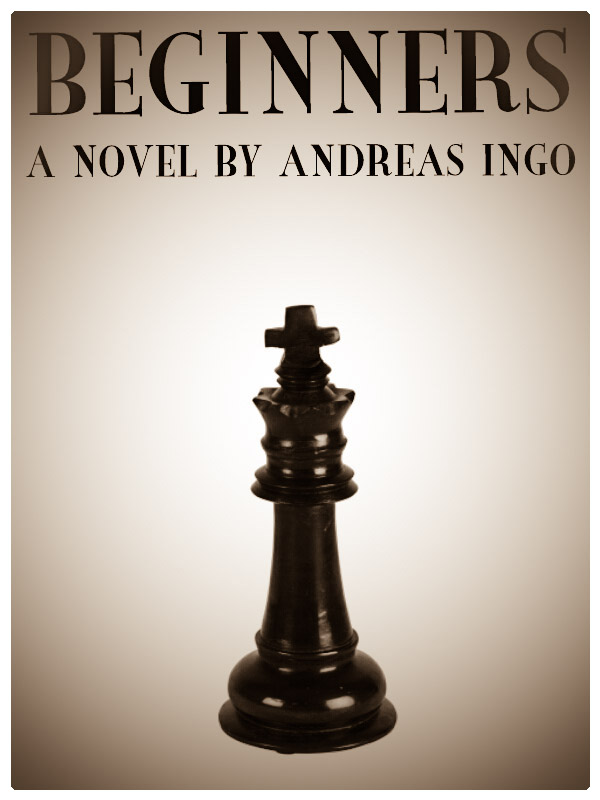
|

|

|

|

|
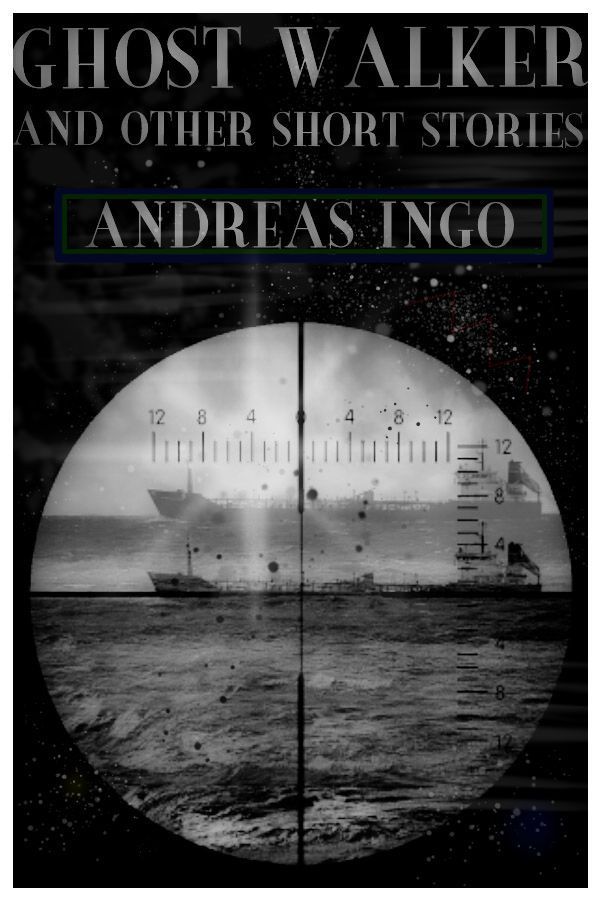
|
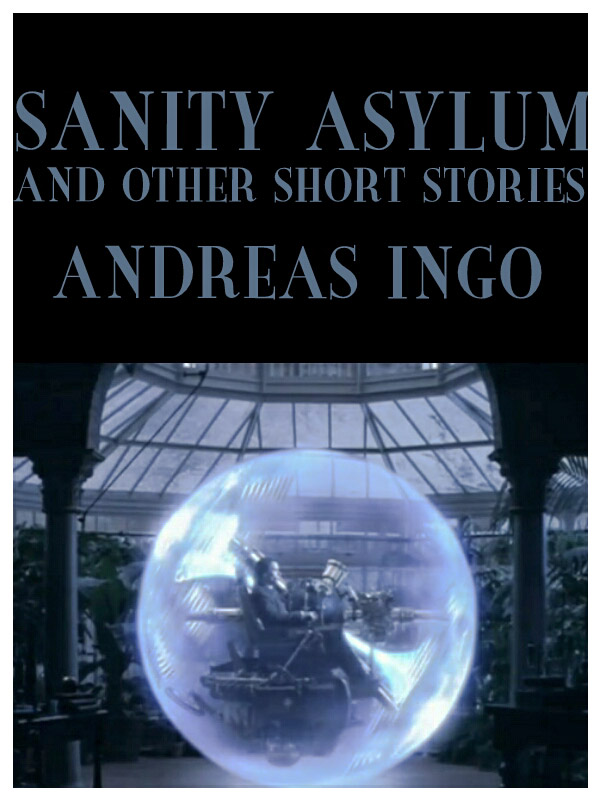
|
|
|
|

|
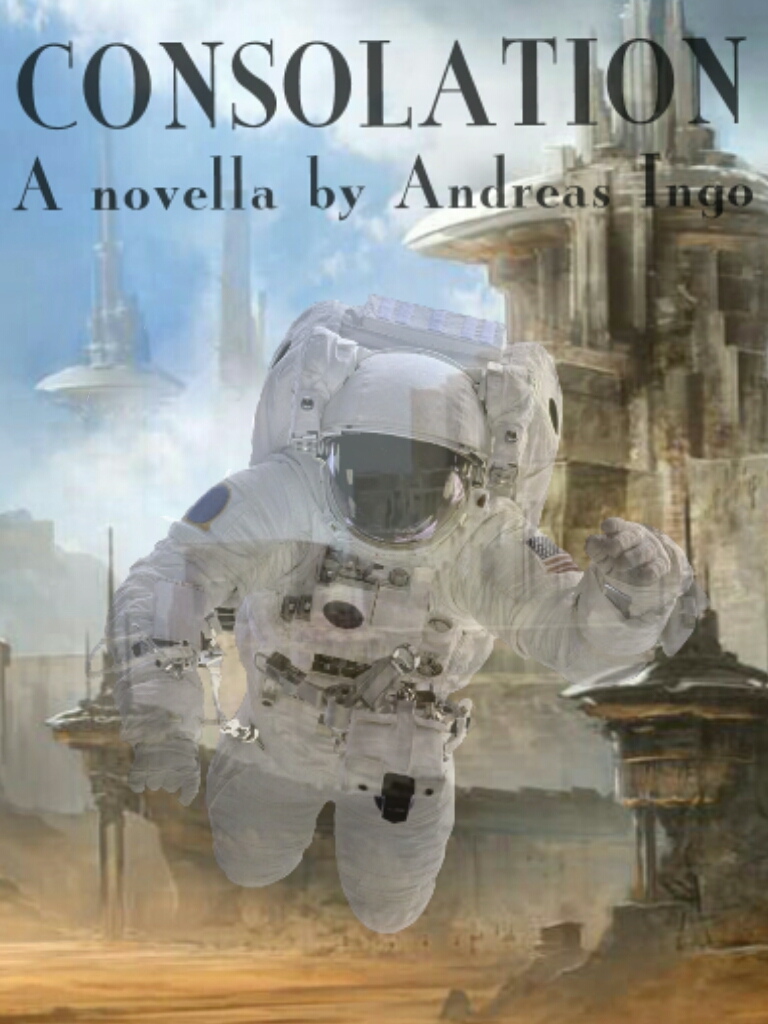
|

|
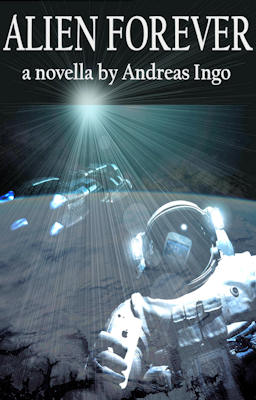
|
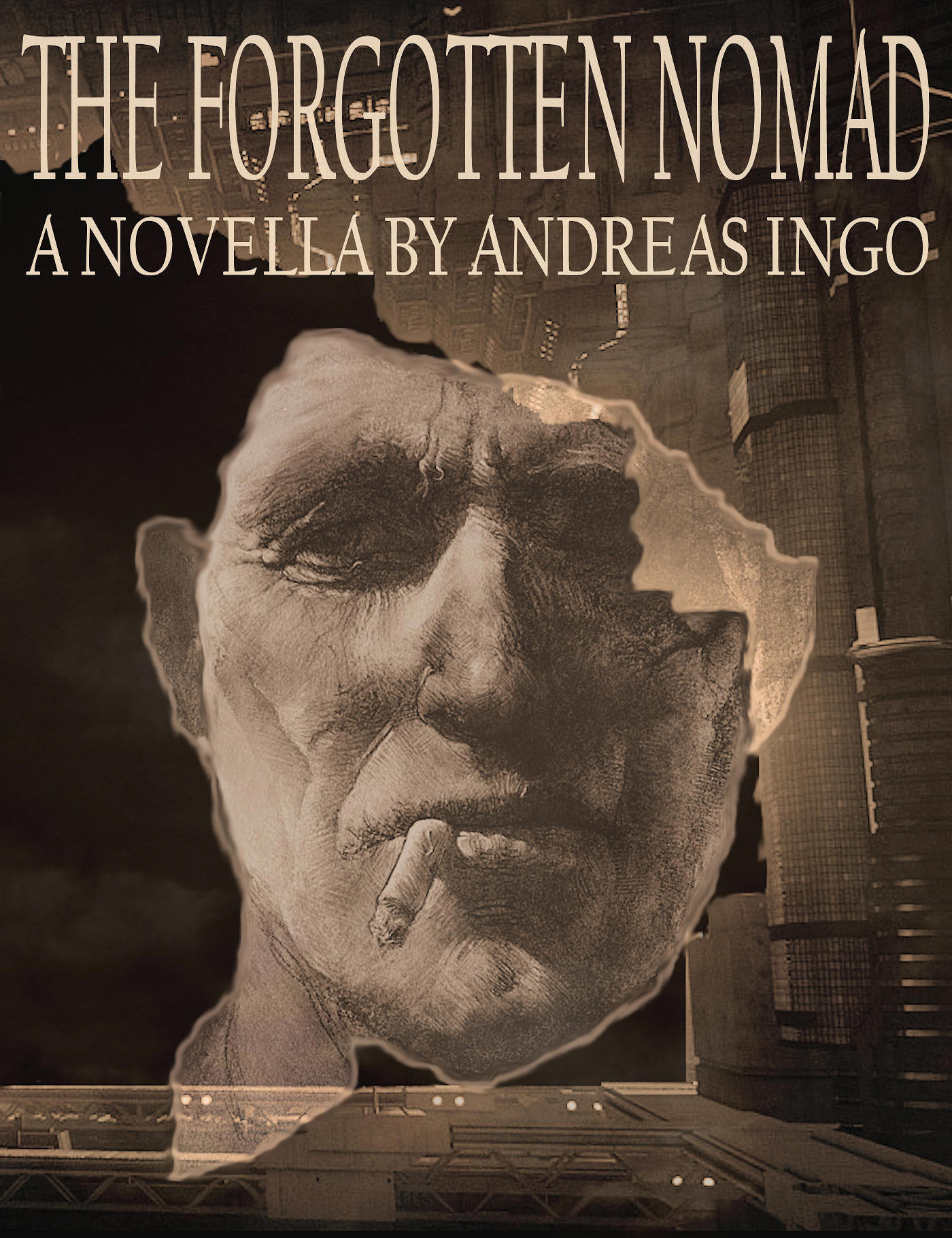
|

|
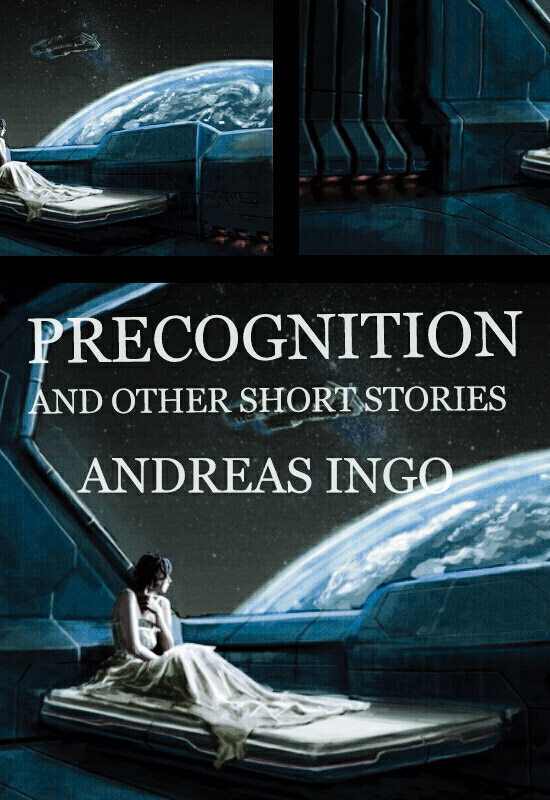
|
|